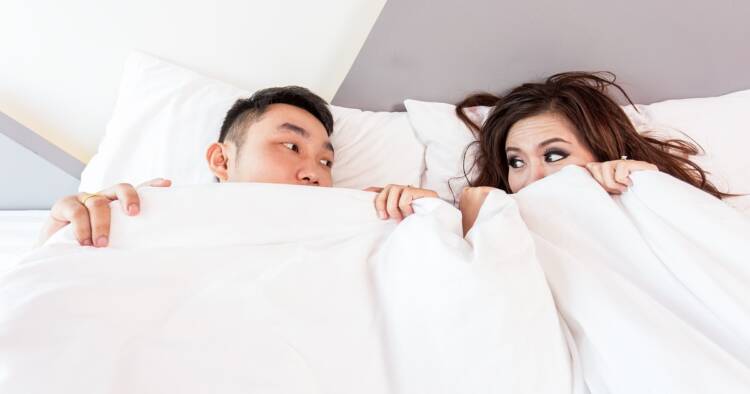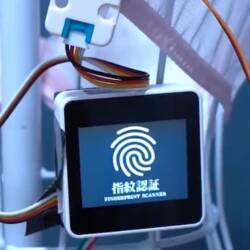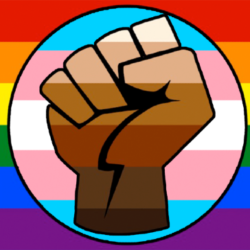Should Sleep Technologies Have a Place in the Sex Tech Industry?
Sometimes “sleeping together” can be… just that.

Sex is often tightly coupled with sleep.
Consider common practices like spending the night, curling up for a nap with your partner, even the term “sleeping together.”
However, this relationship between sex and sleep isn’t reflected in the sex tech industry. People don’t always associate the two as being so intertwined and the potential for developing sleep technologies is overlooked by sex tech brands.
“[The tech industry today] is very centered in policing how people sleep together and it’s very intercourse-centered,” says Danae Tapia. “So we made this distinction between the intimate act of sleeping, how different it is from mainstream approaches to sex.”
Tapia is the founder of The Digital Witchcraft Institute, a space dedicated to hosting projects that promote and represent dissident approaches to technology. In early 2020, she began researching sleep technologies as background for a potential app that would allow people to sleep ”‘together’ remotely”.
“Maybe there are more sophisticated developments now, but when we were speculating about [an app], we immediately separated our aim from approaches that felt very literal and very centered on intercourse, such as having a doll with human forms,” Tapia explains.
She quickly realized though, that this distinction between sleep and sex technologies can be difficult to establish, especially since sexual experiences can often start or end with sleeping.
“To me, [sleeping and sex] are quite connected,” she says.
Sleep technologies on the market are oriented to ‘paranoid couples’
The underlying goal of a majority of sleep technologies available today fall into two categories: Optimizing your own sleep or monitoring someone else’s.
Products designed to improve sleep quality aim to accomplish this by collecting and displaying data. They track how long you’ve slept, how restless you were throughout the night, your blood oxygen levels and heart rates throughout the night. Examples range from more common, like an Apple Watch or FitBit, to more niche, like the Muse brain-sensing headband.
The other category is what Tapia describes as “oriented to paranoid couples.” These products also track your sleep data, but then they turn around and share it with another party.
There are apps specifically designed to share your heartbeat, such as Feel. Or on the more extreme end, there’s the Durmet Smarttress. This smart spring mattress has 24 sensors spread throughout it and sends an alert to its owner if it recognizes a sexual act.
“Everything, in my opinion, was designed with this tracking mindset that to me feels very controlling,” says Tapia, “but it’s very coherent with the era of technology that we’re living in now
Observing another person’s sleep habits doesn’t even require a special app or product. Tapia also heard several testimonials of people who use standard video calling platforms to ensure that their partner is sleeping in a hotel while traveling, for example.
It’s time to build things differently
“Of course, I wish it were different,” says Tapia.
“I wish sleep technology would focus maybe on the celebration of trust… I’d also like to see more technology, more research, and development on exploring the surreal nature of the act of sleeping and dreaming.”
So, that’s what she started building.
In an upcoming article, we’ll take a closer look at Tapia’s project and some of the challenges she faced while developing a privacy-centered, long-distance sleeping app.
Image sources: sasint

















